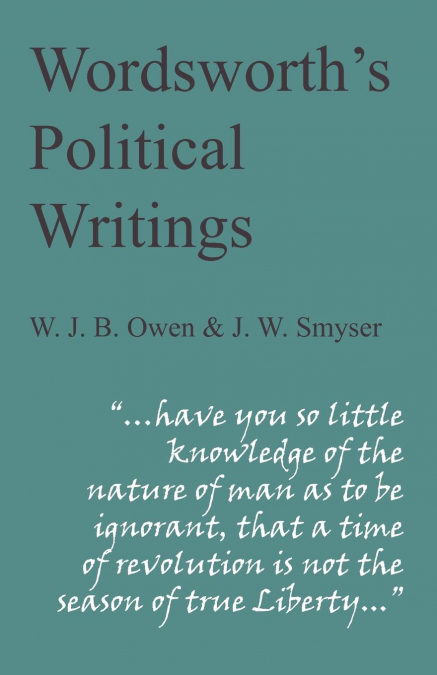
This compilation by Richard Gravil of texts edited by W J B Owen and J W Smyser presents the four major political texts in Wordsworth’s prose oeuvre and illustrates both the detail of the poet’s political grasp, and the remarkable swerves he made between 1793 and 1835. The first text, A Letter to the Bishop of Llandaff (1793) is severely Jacobinical. Had Wordsworth published it he would certainly have been prosecuted for sedition. In the book-length ‘pamphlet’ Concerning the Convention of Cintra (1809), Wordsworth mounts a passionate case for the national independence of Spain and Portugal, denouncing both the English ruling class and that ‘intoxicated setter up of kings’ the Emperor Napoleon, for their betrayal of liberty. The thoroughly Tory Addresses to the Freeholders of Westmorland (1818) is a shocking (but surprisingly eloquent) defence of old corruption. The fourth text is the political ‘Postscript’ to his 1835 volume, The River Duddon, in which a surprisingly social democratic Wordsworth mounts a critique of the ‘heartless schools’ of political economy. The four texts are those of the three-volume Prose Works of William Wordsworth, edited by W. J. B. Owen and Jane Worthington Smyser, and long out of print. The editors’ general introductions and commentary are retained (the commentary converted into footnotes, where the information is of most immediate value), but in the interest of an affordable and attractive reading text, the textual introductions and manuscript notes are omitted. 3